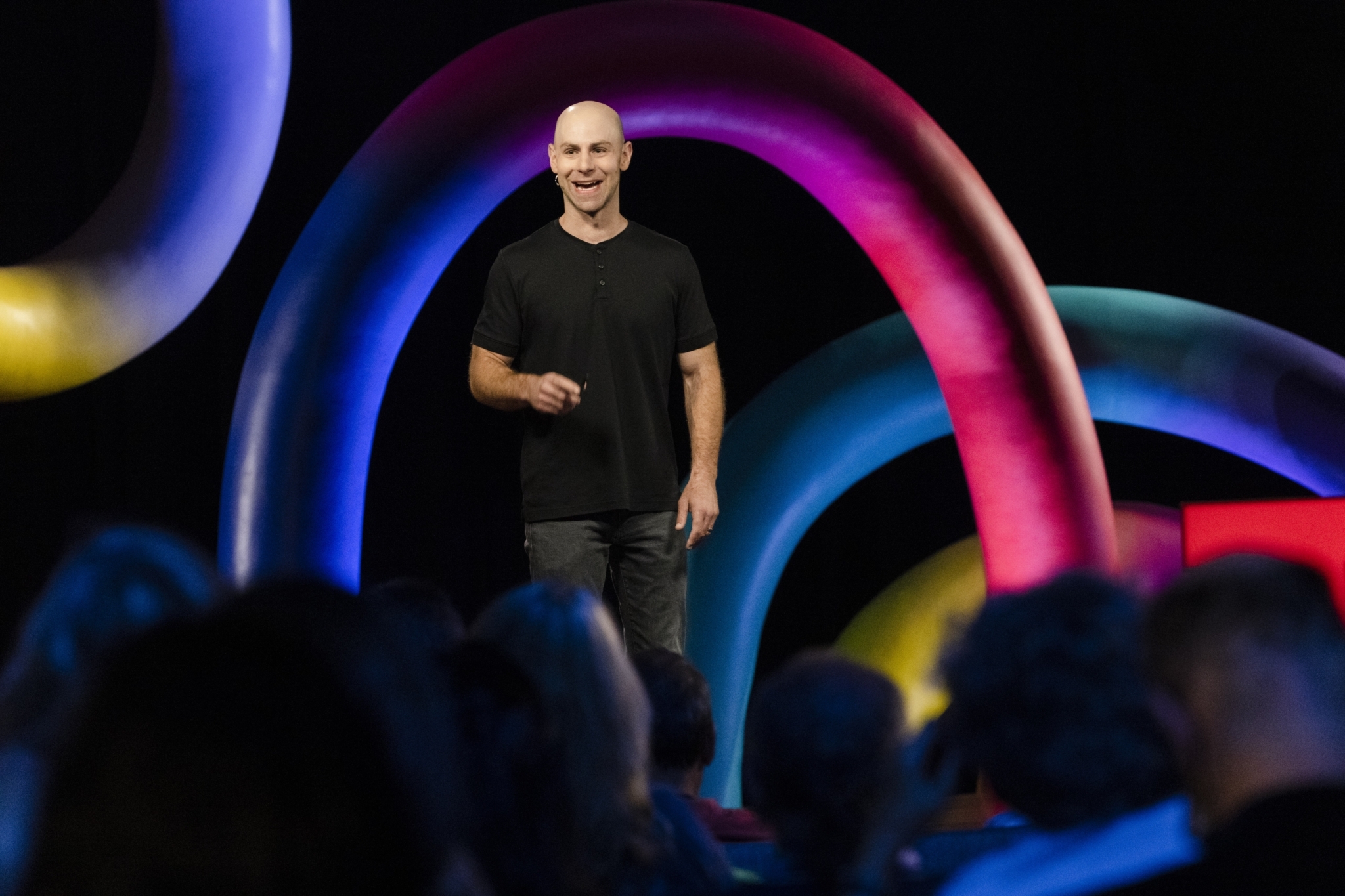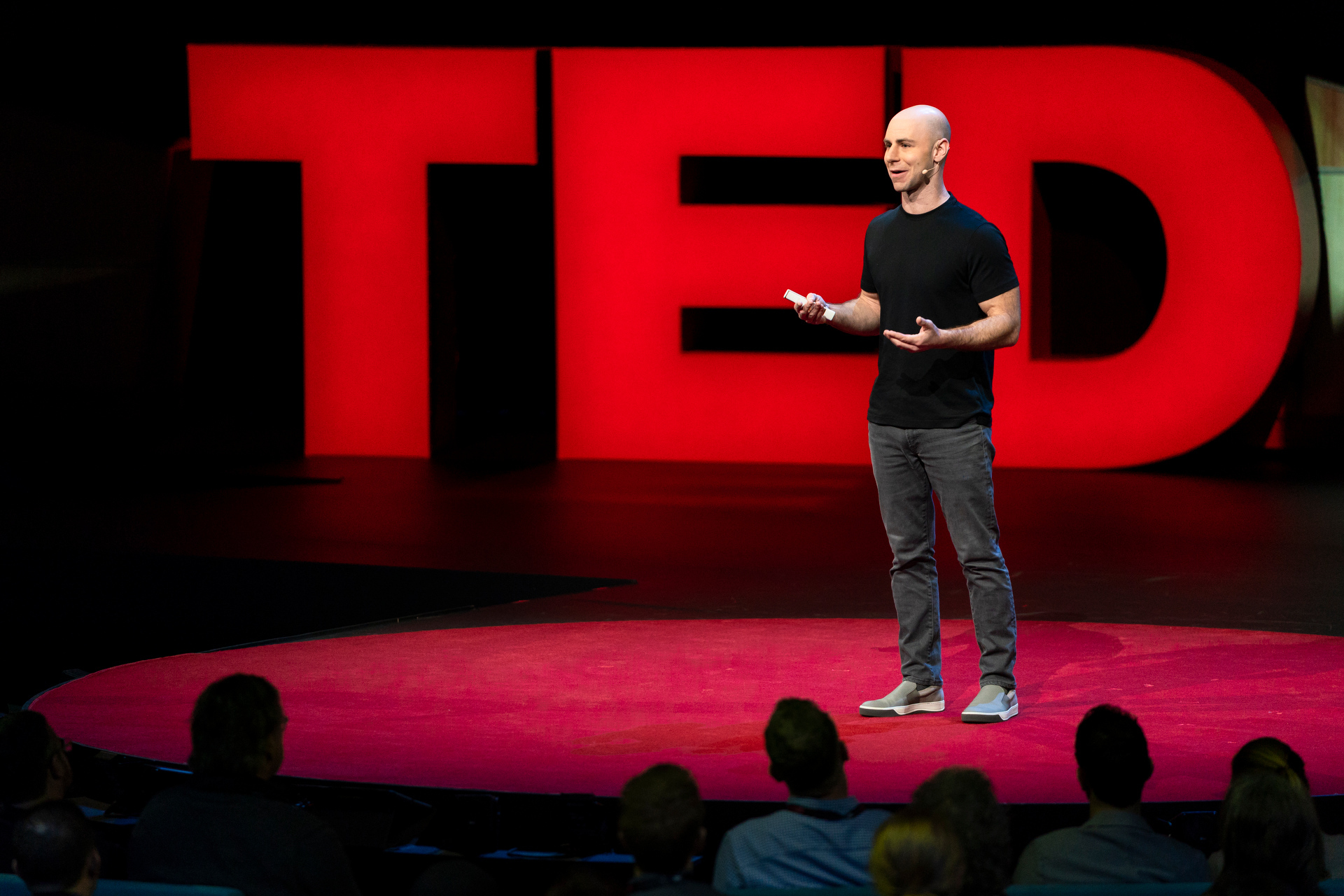The Importance of Culture and Leadership with Mirja Lehmler-Brown
After many years in the finance industry, including a spell at Goldman Sachs, Mirja Lehmler-Brown, founding Managing Director and partner at Hayfin Capital Management Private Equity, decided to set up her own company.
As an incredibly value driven individual, Mirja found that in too many larger organizations collaboration, diversity and a sense of responsibility get lost.
But when you start your own business from scratch, she says, you get to set the culture, set the purpose, determine the behaviors that link to the purpose. There’s no legacy to bear in mind, and every single person you hire should have the same values or be driven by the same sense of purpose that you are.
- Podcast
8 min read
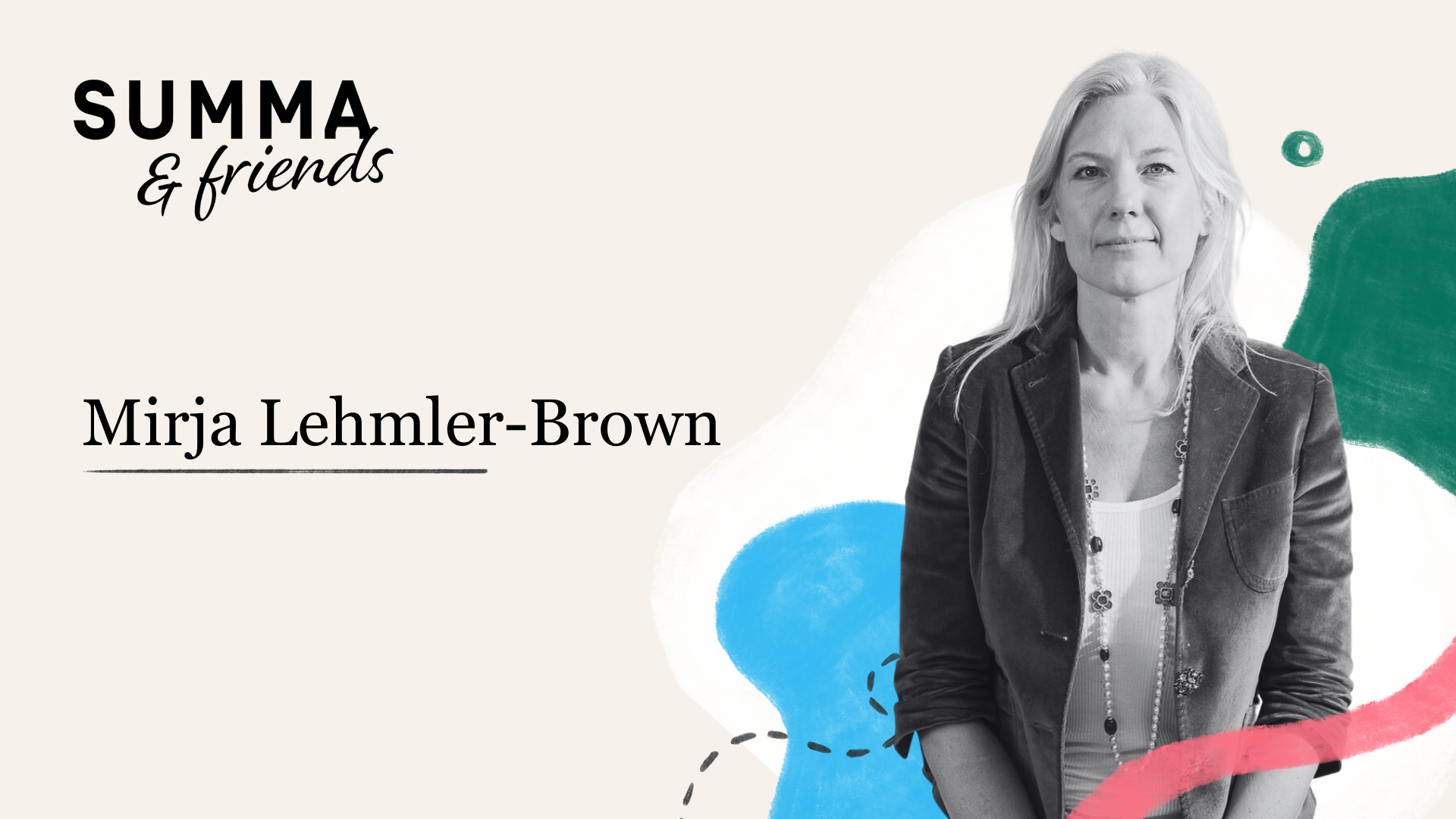
Episode 4
The decision to invest in Summa
Mirja understands how hard it is to build a culture in an organization and ensure that it is truly aligned with the desired values.
Which made the decision to invest in Summa an easy one:
“You [Reynir] were a visionary back then. You and the team you created were so driven around sustainability and everything that you did. It worked for you because it was at your core, it wasn’t just to pretend or to sell.”
Carry out proper due diligence
When investing in an organization, says Mirja, you need to carry out detailed due diligence. For example, when Mirja was looking to invest in Summa Equity, they weren’t just looking to find out why they did something, or what it is the company wants to achieve.
No, thorough due diligence involves getting under the skin of the people you are going to work with.
You need to understand is their purpose for real? What really drives them, what motivates them? How do they work together? How do they make decisions? How do they operate? How will they lead future performance?
“We make 50 reference calls, I always say we will know somebody that knows you, in order to add data points to validate what you’re saying, who you are and how you operate and that takes time.”
How to find people with the same values
So how do you find people with the same values as you?
You need to define your behaviors, not just your values, says Mirja. I.e. What exactly is the behavior that you want to see every day as part of the culture?
And you have to be firm when you see something that doesn’t fit with your preferred behaviors. And when you see it, you need to provide constructive feedback immediately.
“It is a slippery slope if everybody is not living what you are saying is part of your culture behavior, you will dilute that value.”
You need to be disciplined in your approach and stick to it, says Mirja. And even fire people if needs be. You don’t want to carry people who don’t believe in what the organisation stands for.
Of course, you could try and help them improve and understand your values, but if you hired the wrong person, then it won’t matter how hard you try. They just won’t deliver what you need from them because they won’t have the same values as you.
Why values, behavior and culture build better businesses
Back in 2016, Mirja invested in Summa, but what was it about the company that appealed to her? Their strategy around sustainable investing? The team? The culture?
“You [had] a passion for sustainability. For finding the thematic areas of growth linked into the different topics, themes, the areas within sustainability that you believed in, and you used that as a filter for everything that you were doing. And that’s why we believed it would work, because it was so true to your core.”
Creating a fun culture at work
When Reynir founded Summa Equity, two things were important for him:
- To have a strategy around sustainable investing and,
- To create a culture where it was fun to work.
What they’re doing at Summa is innovative and to succeed requires a culture of psychological safety, where employees can bring their whole self to work.
But when you look at the private equity industry historically, building a culture based on psychological safety just wasn’t at the core of most private equity firms.
“When people set up these firms, they were very returns focused, looking at financial metrics etc. It’s been very white male dominated for a while. And I think people very much hired people who looked like them.”
And the thing is, says Mirja, if that’s the behavior you encourage, then that’s the culture that you stand for.
But people today want a culture they can be proud of. They want to understand the purpose at work and to feel like they connect to it. They want to feel at home in an organization.
Challenge bad leadership
We need to challenge bad leadership, whatever the industry, says Mirja. If your leadership is talking the talk but not walking the walk, they need to evolve. Leadership needs to take diversity and sustainability seriously.
“Change management is not easy. Very often, if you live with the legacy you can talk the talk, but to actually drive change in behavior and improve the leadership, it’s tough.”
Bringing more diversity into the organization
There’s a big focus right now on diversity in hiring and recruiting women in particular into the private equity industry, where previously there was hardly any.
When you start with the right focus around culture and create the right culture, it attracts diversity and women. It’s symbiotic, says Mirja.
At Summa Equity for example, they didn’t start with the idea of hiring lots of women, they started by creating a culture that made the organization an attractive place for women to work.
It starts with having the right cultural values that determine behavior:
“Define what behaviors you need to have, that you want to have, to be able to deliver an inclusive culture. And that’s much harder, but I think it is a necessity, if you really want to change, if you really want to create behaviors around a more diverse culture.”
Change management is a big undertaking though, says Mirja, very often you’ll need to engage organizational experts to help you with it.
Then, you need to role model the behavior you want from the top down. Because if senior management don’t model the ideal behavior, the next layer down won’t, and it’s not going to follow suit.
You need to make your organization understand that no change is not an option.
Why changing mindset delivers value
When you have a diverse workforce, you get diversity in decision making. That’s because when your employees aren’t all the same, they think differently, they bring different skills to the table.
Yes, it’s harder to manage a diverse workforce, but if you find a way to communicate clearly, you get access to different types of insights, with different data points, that then lead to better decision making.
But, says Mirja, diversity isn’t just hiring more women. Diversity comes in many forms – cultural, background, age, religion, sexual orientaiton, nationality, ability, neurodiversity etc.
“If you start out with a culture where you cherish differences, where you’ve come up with a system to allow for communication and transparency to flow between different people, you will get more innovation, you will make better decisions.”
Do culture due diligence
If you’re a young person aspiring to work in the private equity industry, do your culture due diligence, advises Mirja.
Look beyond the brand name and the training you’ll get. Be smart with your research – check out their website, ask your networks for feedback, figure out what the culture is like at the company, and whether your values and theirs align.
“What is it really? How do they treat young people? Are you being listened to? Are people interested in who you are? Are they investing in you? Are they helping you to learn? Are they helping you to bring yourself to work? There are fantastic firms in private equity, like Summa, where they take this seriously.”
What the world needs most
“We need to ensure that we work together to focus on making this world a better place. And that goes for companies, that go for private individuals, but that also goes for governments and regulation. We all need to work together to reach Net Zero, to look after the world that we live in in a sustainable way.”
Leaders need to ensure that their culture, values and behaviour are at the core of everything they do, because, says Mirja, that is what will allow you to be successful. Put your culture first and the end result will be great results.
And for employees, you need to be yourselves and make sure that the people around you take that seriously. If your cultural values are important to you, make sure they’re important for the firm you work at.
“We can all make a difference no matter what kind of job we have, where we work. It’s important to speak up and be yourself, because everyone in an organisation can influence the organisation.”
The Summa Summarum newsletter
Sign up to our newsletter
Latest readings
News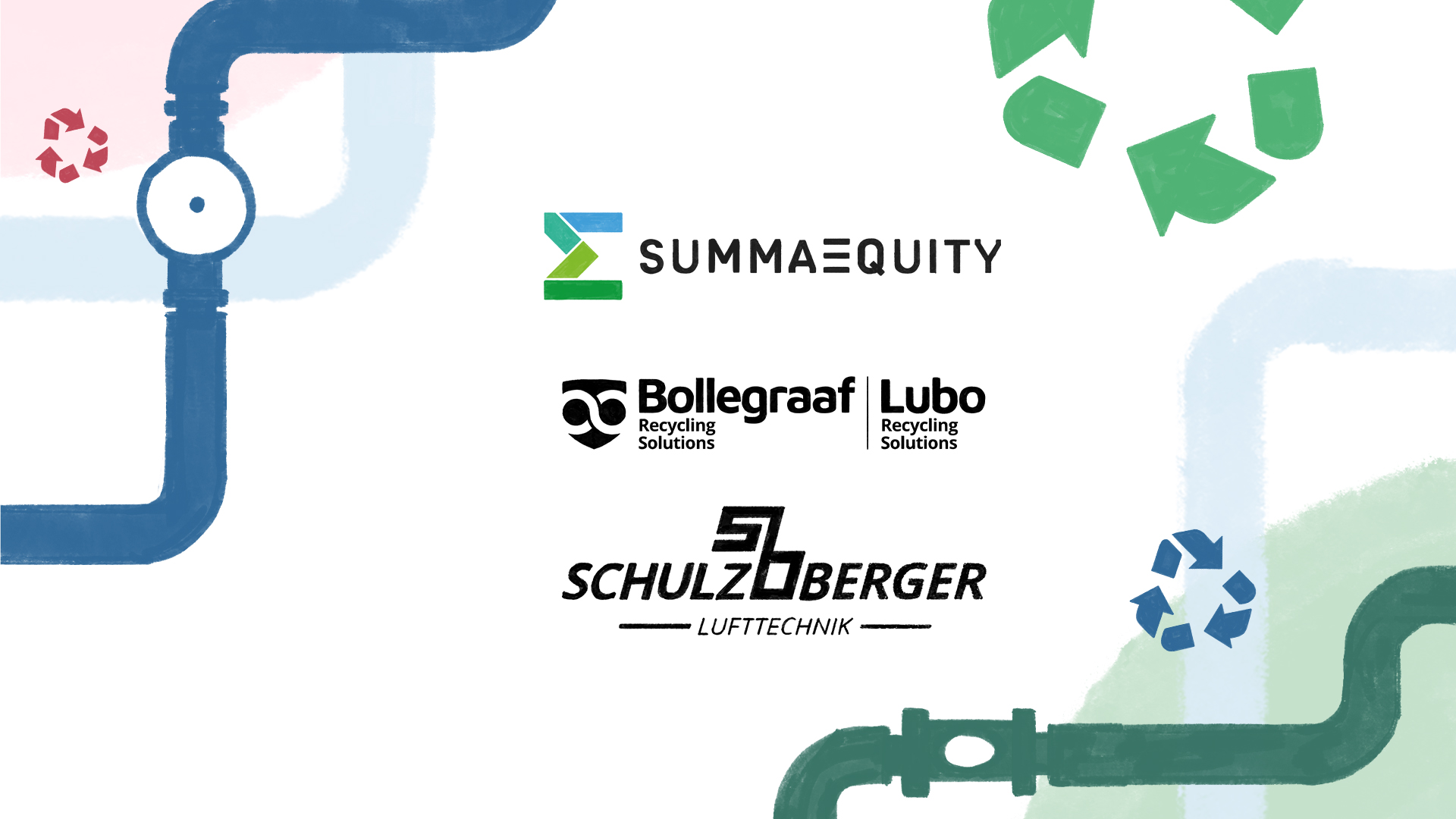
Summa Equity adds Schulz & Berger to its waste equipment platform to accelerate growth and innovation in circular economy technologies
Read more
The case for scalable regenerative agriculture
Read more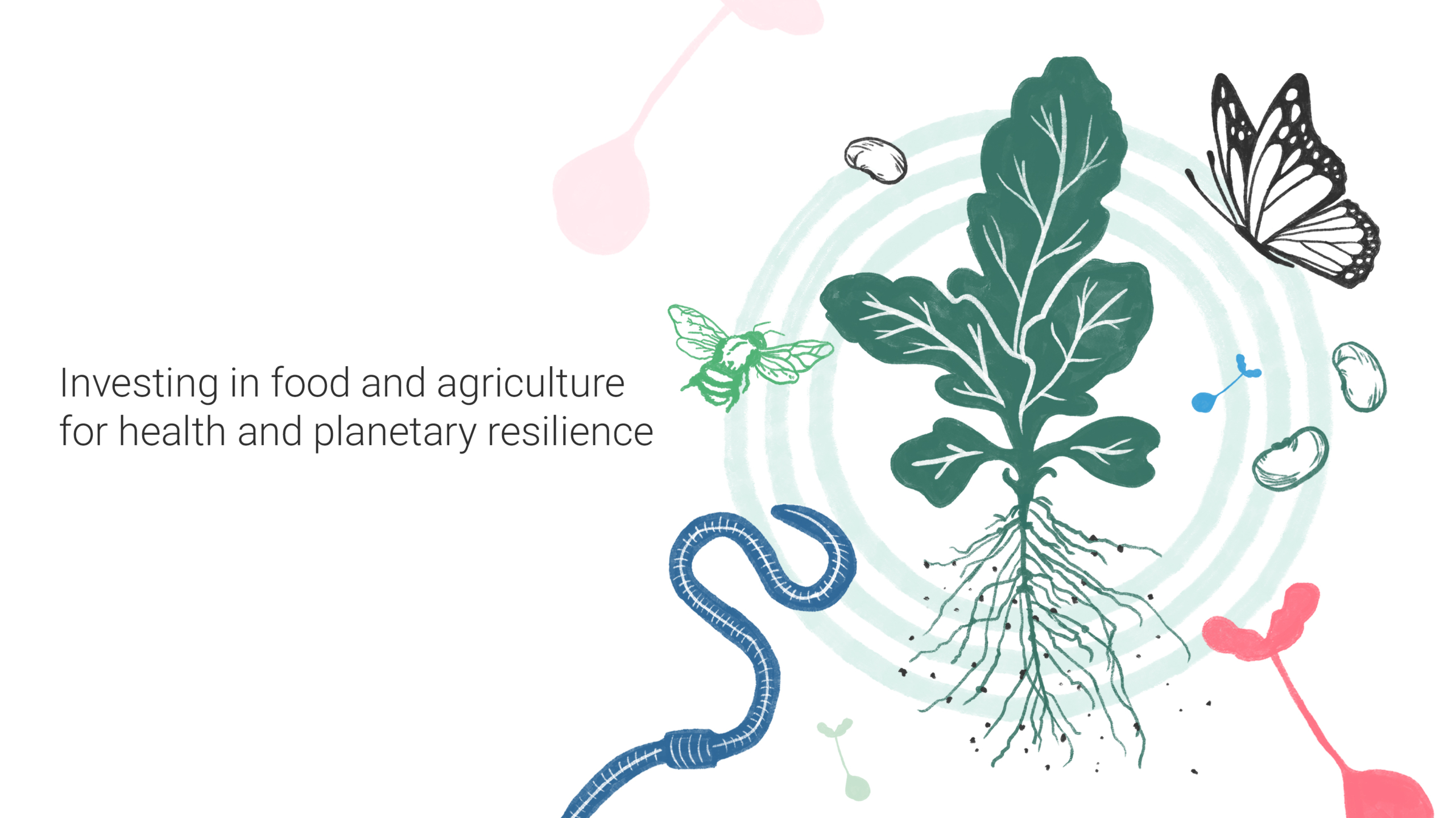
Investing in food and agriculture for health and planetary resilience
Read more
NetGuardians and Intix unite to form Vyntra
Read more
Planetary boundaries as a guiding framework for sustainable growth
Read more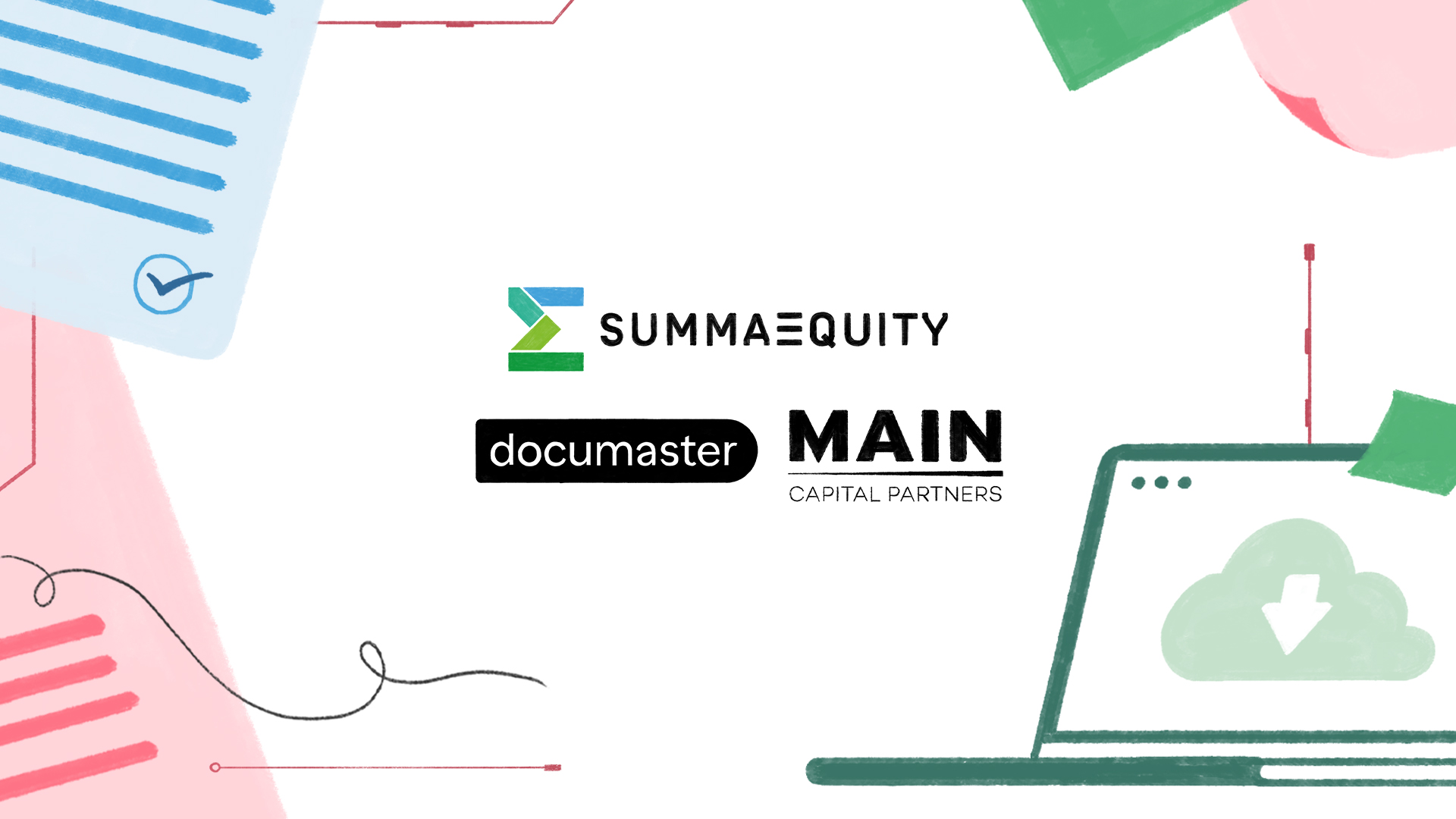
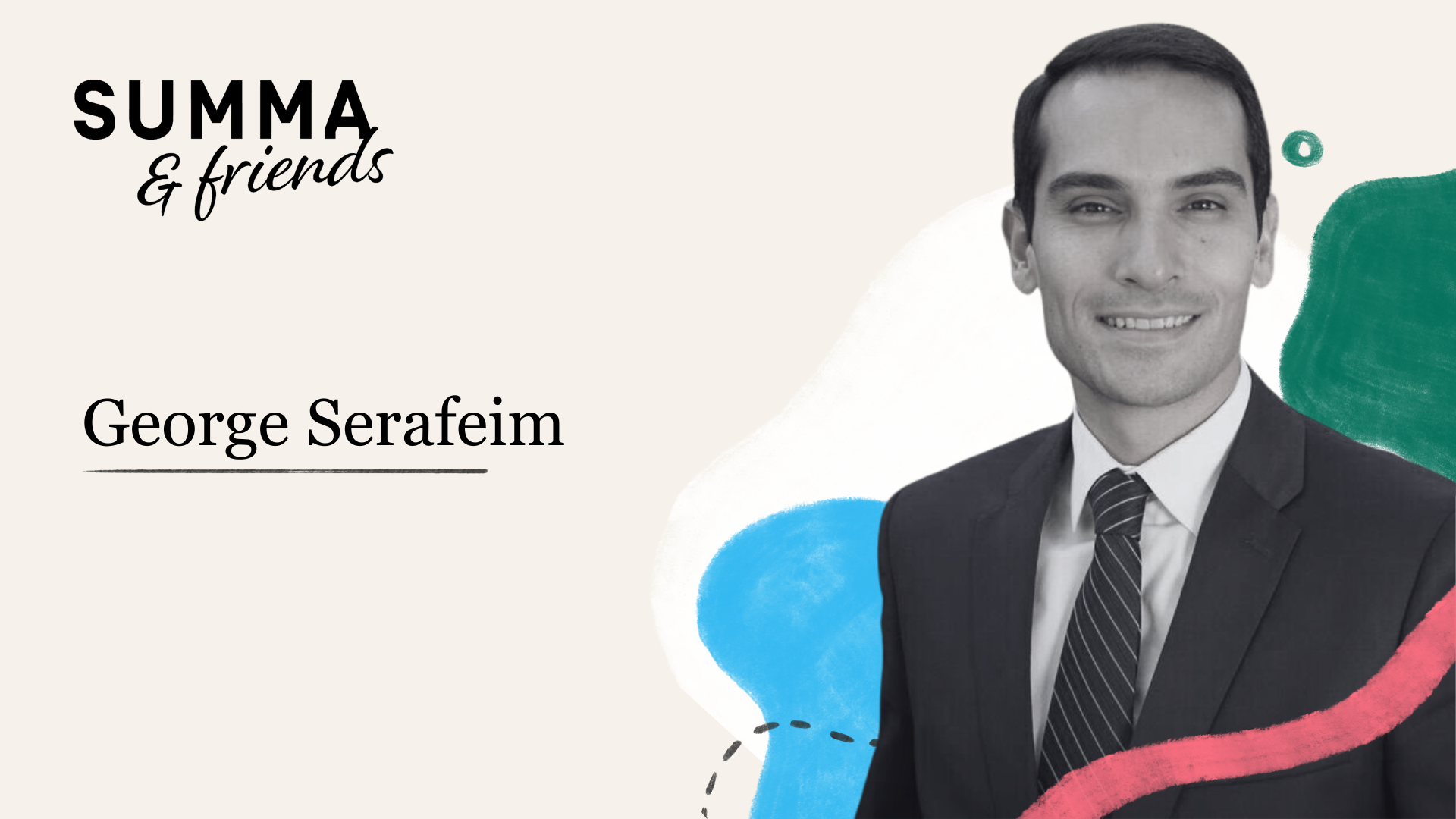
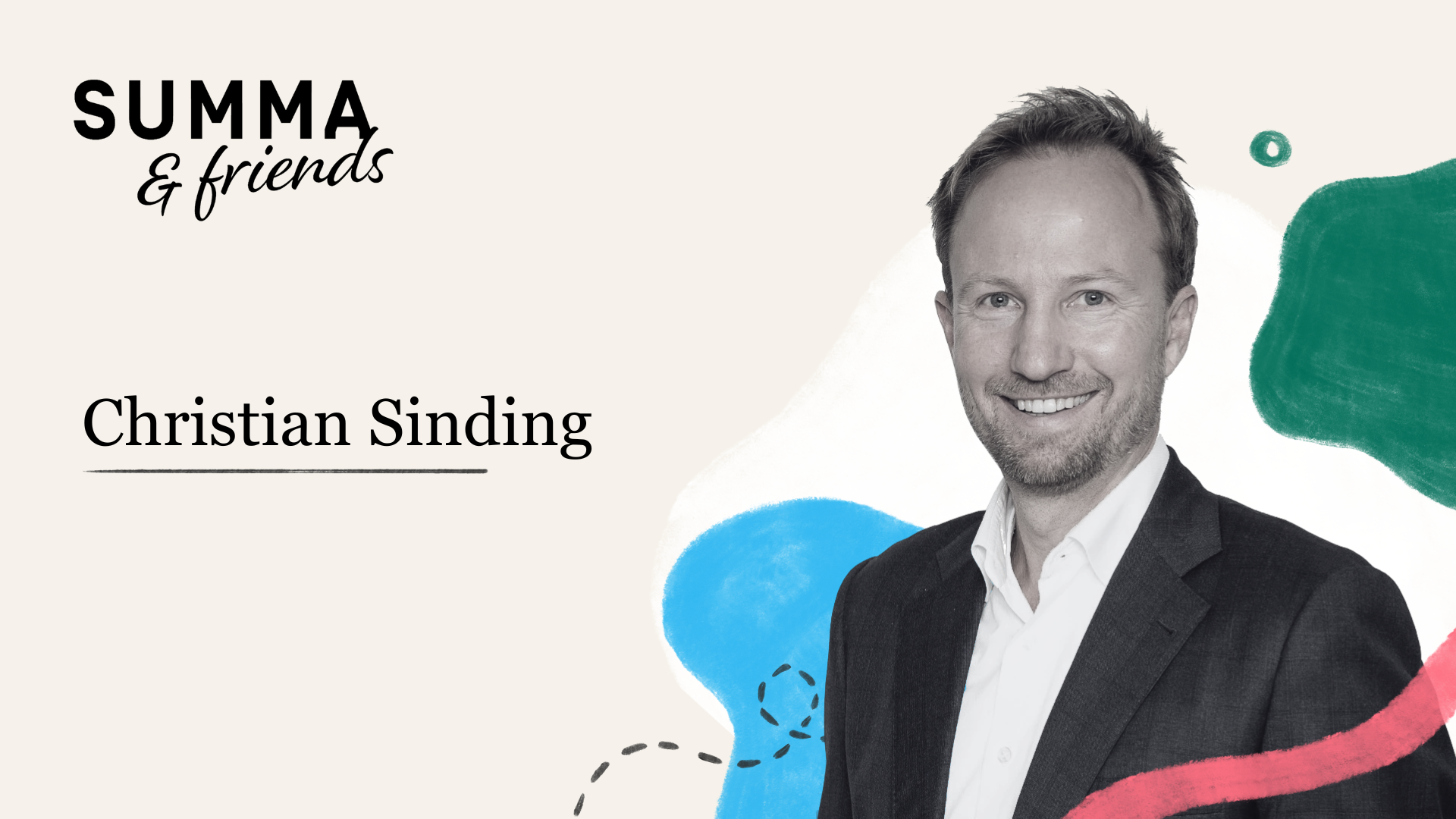
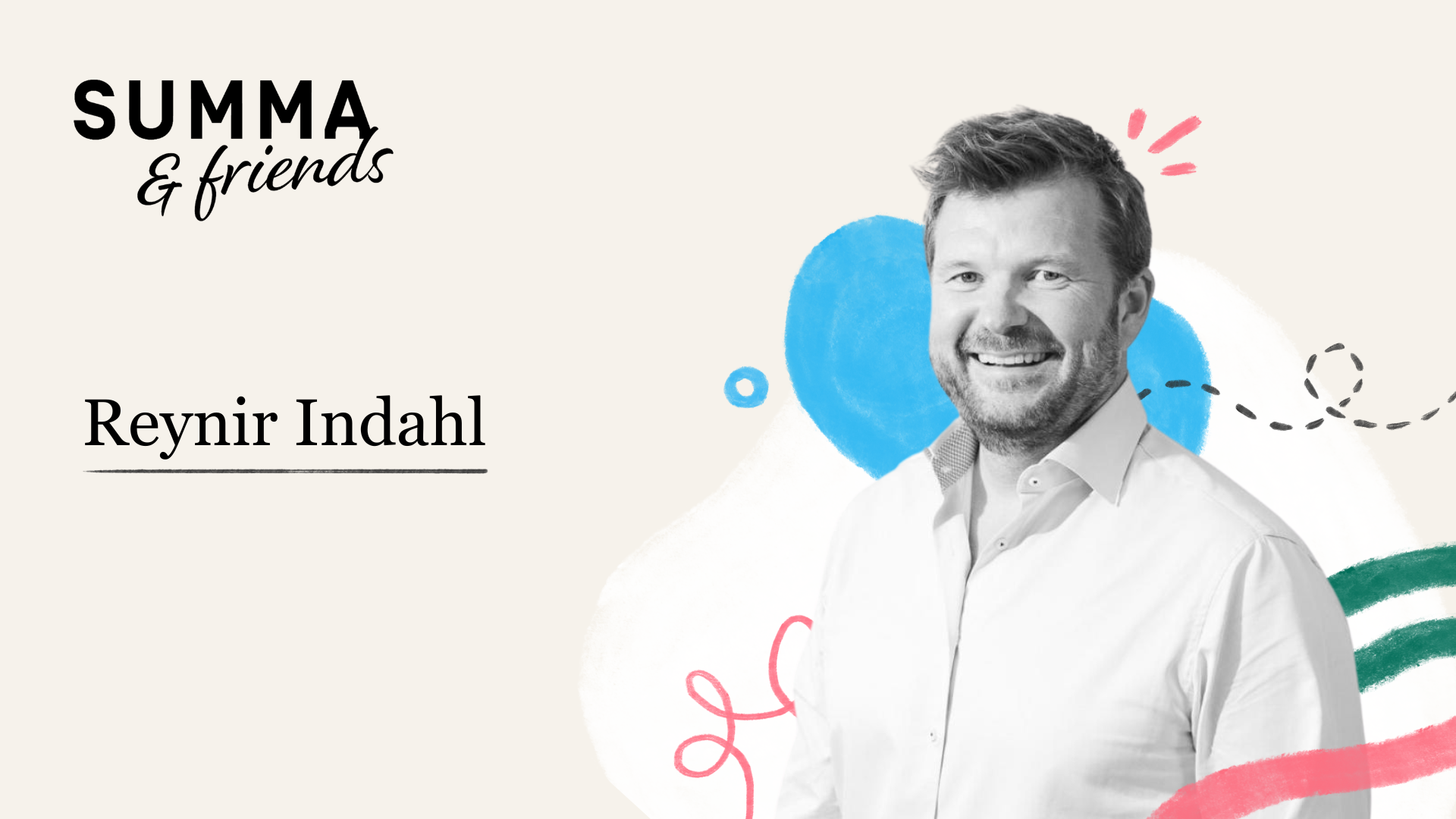

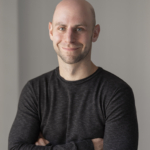 Adam Grant
Adam Grant
